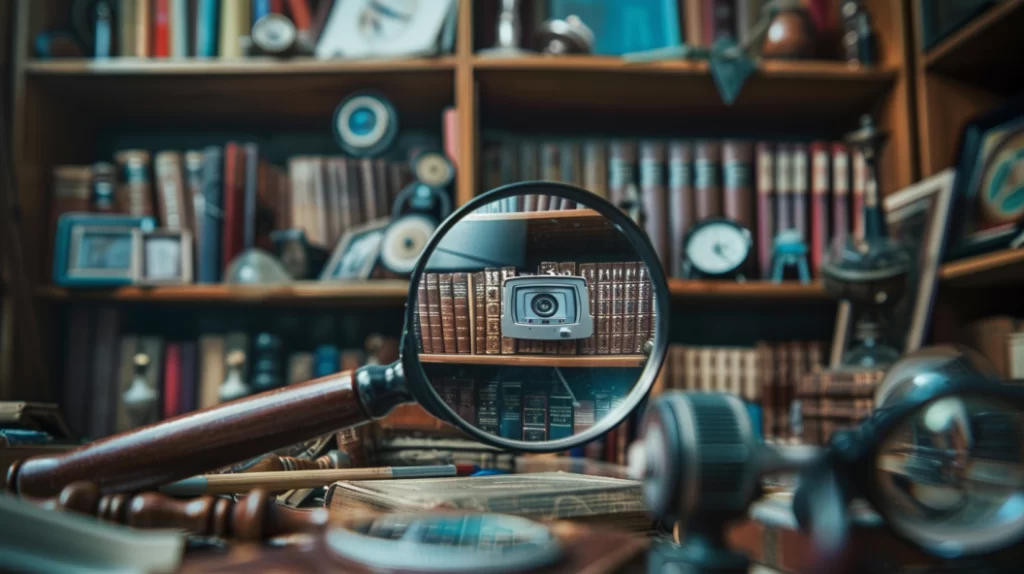Are Hidden Cameras Legal?

Hidden cameras can offer reassurance, but their legality hinges on where and how you deploy them. It’s typically fine for personal use in your home, but avoid placing them in private areas such as bedrooms without consent. Regarding the workplace, surveillance in shared spaces may be acceptable, but it’s never permissible in restrooms. Remember, laws differ by state. One-party consent often suffices for audio recordings, but some states mandate approval from all parties. Violating these regulations can result in severe consequences. Remember that your circumstances might warrant specific considerations, and it’s crucial to understand all aspects to ensure compliance with the law.
Key Takeaways
- Hidden camera legality varies by state and is influenced by consent laws and specific use contexts.
- Consent is a fundamental factor; in some states, all-party consent is required for audio recordings.
- Placing hidden cameras in private areas like bedrooms or bathrooms without consent is typically illegal.
- Surveillance in common areas is generally permissible in workplaces, but private spaces are protected.
- Understanding and adhering to federal and state-specific regulations is essential for legal compliance.
Understanding Hidden Cameras
Exploring hidden cameras involves understanding hidden camera legality and ethical implications. In a community valuing security and privacy, hidden cameras, if used responsibly, can provide peace of mind in various settings. They help protect homes and ensure workplace safety. However, respecting legal boundaries and obtaining consent when using them is crucial.
Visible cameras are important for security in public spaces. This helps people feel safe while also respecting their privacy. Hidden cameras may be okay in some areas, like restrooms, but prioritizing transparency is crucial. Keeping cameras clearly visible in these places helps strike a balance between security and privacy rights. By using visible cameras, you can improve security without intruding on people’s privacy. It’s a fine line to walk and needs careful thought in different settings.
When you’re thinking about using hidden cameras, whether for video or audio recording, getting consent is crucial. Even when focused on security, it’s important to ask for permission from the people you monitor. This shows respect for their privacy and helps to balance security needs with the right to privacy. By following these rules, you can ensure that your use of hidden cameras respects everyone’s privacy and helps to build trust in your community.
Legal Boundaries in Homes
Understanding the legal restrictions surrounding hidden cameras in homes is essential to ensure you respect boundaries and privacy. Whether you’re considering installing surveillance for security or monitoring purposes, it’s important to be part of a community that values privacy and complies with the law. Knowing the rules and guidelines allows you to make informed decisions that align with legal requirements and respect others’ rights. Here’s what you need to know:
- General Legality: In most states, using hidden cameras in your home for personal use is generally permissible. This allows you to enhance your home’s security without worrying about breaking the law.
- Private Areas: Placing hidden cameras in private areas of your home, such as bedrooms or bathrooms, is usually unlawful. Respect for personal privacy within these spaces is paramount, and violating this can lead to severe legal consequences.
- Consent: While you typically don’t need consent to use hidden cameras in your home for monitoring purposes, it’s important to ensure you’re not infringing on anyone’s privacy rights. Remember, the feeling of safety starts with mutual respect.
- Legal Consequences: If privacy laws are violated by improperly using hidden cameras in prohibited areas, you could face fines or jail time. Understanding the boundaries is crucial to maintaining a safe and legally compliant home environment.
Workplace Surveillance Laws
When dealing with workplace surveillance laws, it’s crucial to balance privacy and security. Knowing the limits of workplace surveillance is key to building trust and a sense of belonging within your team. By understanding and following these laws, you can create a work environment that respects everyone’s rights while ensuring the safety of your business. It’s important to communicate openly with your employees about the reasons for implementing surveillance measures and fostering a culture of transparency and respect. Remember to handle any collected data responsibly and in compliance with legal requirements. By doing so, you can maintain a positive work environment where everyone feels valued and protected.
In most cases, it is generally acceptable to have video surveillance in common areas such as lobbies and hallways. These spaces are typically considered suitable for surveillance because security needs often take precedence over privacy concerns in these areas. It is important to ensure that the use of video surveillance is balanced with respect for individuals’ privacy rights. By strategically placing cameras in these areas, security measures can be effectively implemented without compromising individuals’ privacy. When considering video surveillance in common areas, it is essential to strike a balance between security needs and privacy rights to create a safe and respectful environment for all.
Private areas like restrooms and locker rooms must not be monitored with video surveillance. Respecting these personal spaces is essential for creating a professional and respectful workplace environment. This rule is non-negotiable and crucial for maintaining a positive atmosphere among coworkers. It ensures that everyone feels comfortable and their privacy is protected. Therefore, it is vital to strictly adhere to this policy in order to promote a harmonious and respectful workplace culture.
Company-owned devices may be electronically monitored, but there are specific rules to follow. It is important to inform your employees about this monitoring and, in some cases, receive their consent. This monitoring helps protect company assets and ensure compliance with policies. Maintaining transparency in this process is crucial to build trust and avoid misunderstandings. By clearly communicating the reasons for monitoring and the potential benefits, employees are more likely to understand and support these measures. Remember to handle employee data responsibly and in accordance with privacy laws to maintain a positive work environment.
When conducting physical searches at the workplace, it’s crucial to communicate clearly with employees and obtain explicit consent to comply with surveillance laws. By understanding and following these laws, you can effectively balance the need for privacy and security, creating a safer workplace that fosters a sense of belonging among employees. Ensuring that employees are aware of and agree to these searches helps to maintain a harmonious work environment while upholding legal requirements. This approach enhances trust and transparency within the organization, ultimately leading to a more positive and secure workplace environment.
Audio Recording Rules
In the workplace, video surveillance and audio recording have different rules. When it comes to audio recording, one common requirement is one-party consent. This means that at least one person involved in the conversation must agree to the recording. Understanding these distinctions is crucial to ensure you’re respecting privacy and complying with the law. By knowing the rules around audio recording, you can avoid legal issues and maintain a professional environment. Remember, it’s important always to consider the privacy of others and follow the guidelines set in place.
Here’s what you need to know:
- One-Party Consent Rule: In most states, you’re allowed to record conversations as long as one person involved is aware of the recording. This means you could legally record a conversation you’re part of without the other party’s consent.
- All-Party Consent: However, 11 states have stricter laws, requiring all participants in the conversation to agree to the recording. Failing to obtain consent from everyone can lead to significant legal troubles.
- Violating Consent Laws: Ignoring these laws and recording without proper consent can lead to severe legal consequences, including criminal charges or civil lawsuits.
- Understanding Compliance: To ensure compliance, familiarize yourself with your state’s specific audio recording laws. Remember, these regulations are separate from those governing video surveillance, emphasizing the need for a thorough approach to privacy and legality in private and public settings.
Being aware of these rules lets you navigate the intricate world of audio recording without overstepping your bounds.
State-Specific Regulations
Understanding the legality of hidden cameras requires a thorough examination of each state’s specific regulations. You’re not alone in wanting to make sure you’re on the right side of the law.
Each state has its own set of laws regarding surveillance, which dictate how hidden cameras can be used. Understanding and complying with these laws is crucial to avoid legal issues. Navigating the various state laws can be complex, but ensuring that you operate within the legal boundaries is necessary. By following the regulations, you can prevent serious legal consequences. It is important to be mindful of the rules and restrictions to avoid any potential legal trouble. Remember that each state has unique regulations, so it is essential to be informed and compliant.
In some states, you can put hidden cameras in your home without breaking the law. However, in other states, there are strict rules, especially in places where people expect privacy. It’s crucial to know these rules to respect privacy and protect yourself. Keeping track of state regulations helps balance privacy and security.
The concept of two-party consent is crucial when it comes to audio recording and also plays a role in hidden camera regulations in many states. To ensure you stay within legal boundaries, it’s important to research and follow the guidelines set by each state thoroughly. By being diligent in your compliance, you show respect for others’ privacy and shield yourself from potential legal consequences. Understanding these laws and regulations is essential to protecting yourself and others.
Frequently Asked Questions
Are Hidden Cameras an Invasion of Privacy?
Peeking through life’s keyhole, you’d feel violated, right? Hidden cameras in private spaces strip away your secrecy cloak, making you feel exposed and betrayed. They’re indeed an invasion of privacy, shattering trust and comfort.
What States Are Hidden Cameras Illegal?
You may be wondering about the legality of hidden cameras. They are illegal in private spaces in many states, including California, Florida, and Texas. Always check your state’s laws to avoid fines or jail time. You’re not alone in this.
Do You Have to Tell Someone if You Have a Camera in Your House?
Imagine you’re hosting a gathering at your castle. You don’t always have to announce the guards watching over you, but in some territories, it’s wise to inform guests, ensuring everyone feels welcomed and respected in your domain.
Can You Call the Police About Hidden Cameras?
Yes, you can call the police about hidden cameras if you feel your privacy’s been invaded. It’s a step towards ensuring your rights are respected and your personal spaces remain personal.

